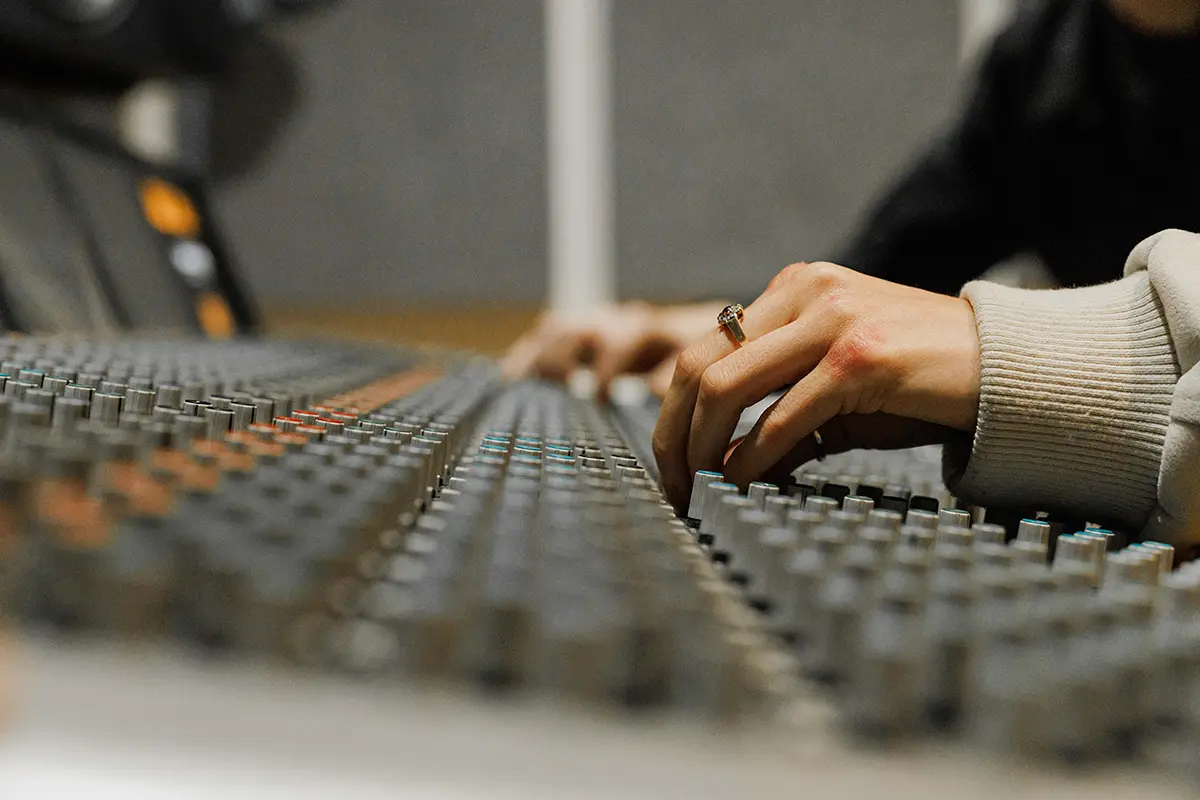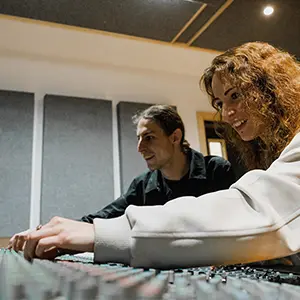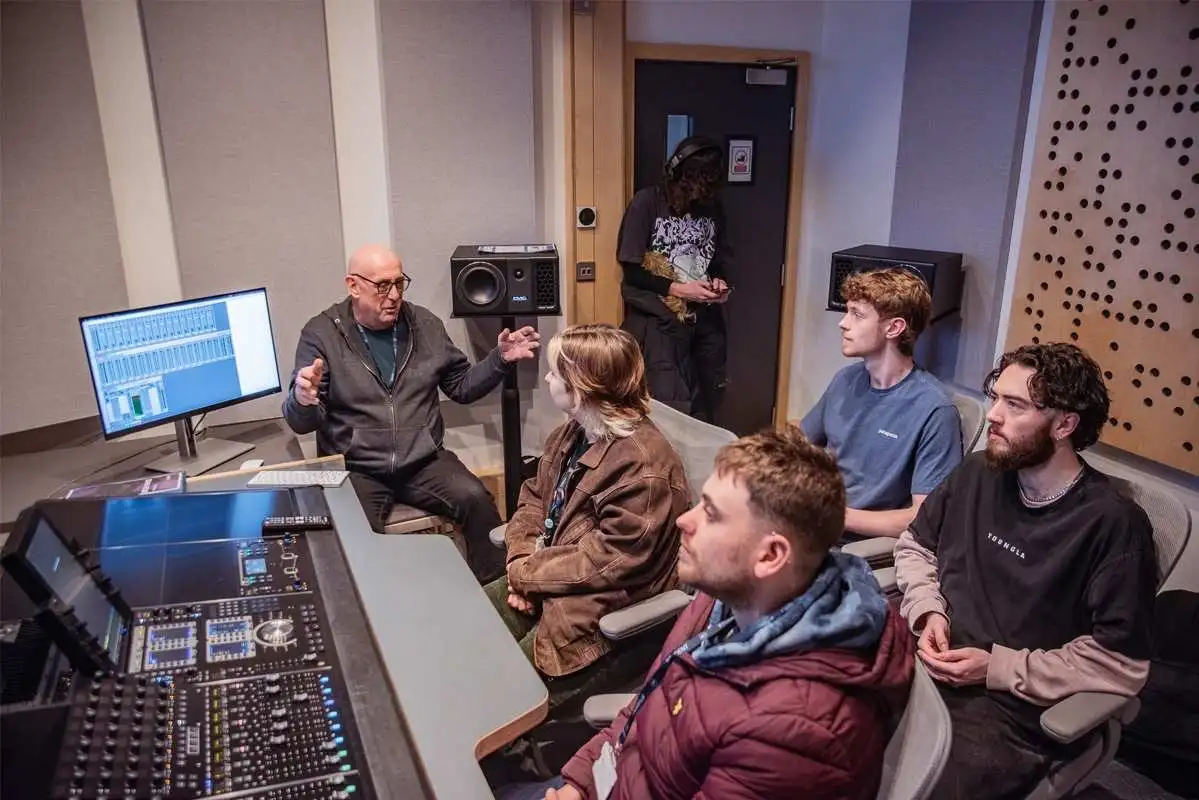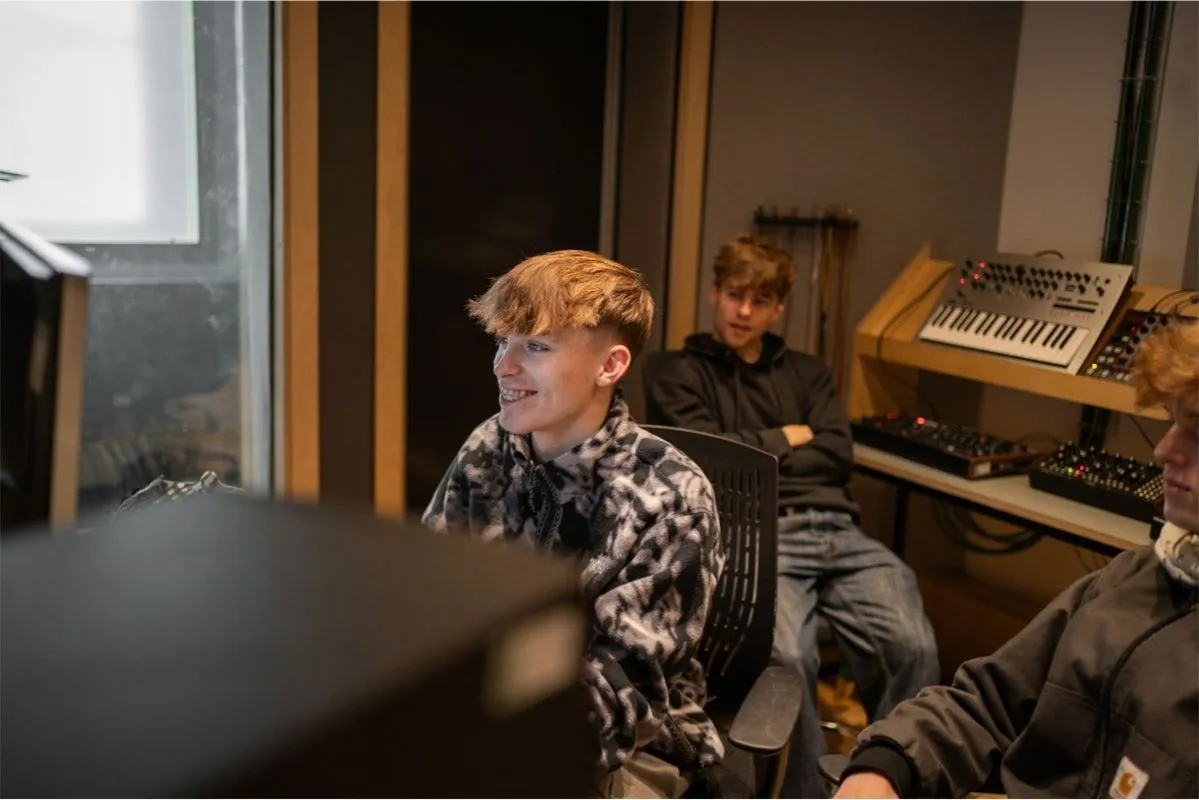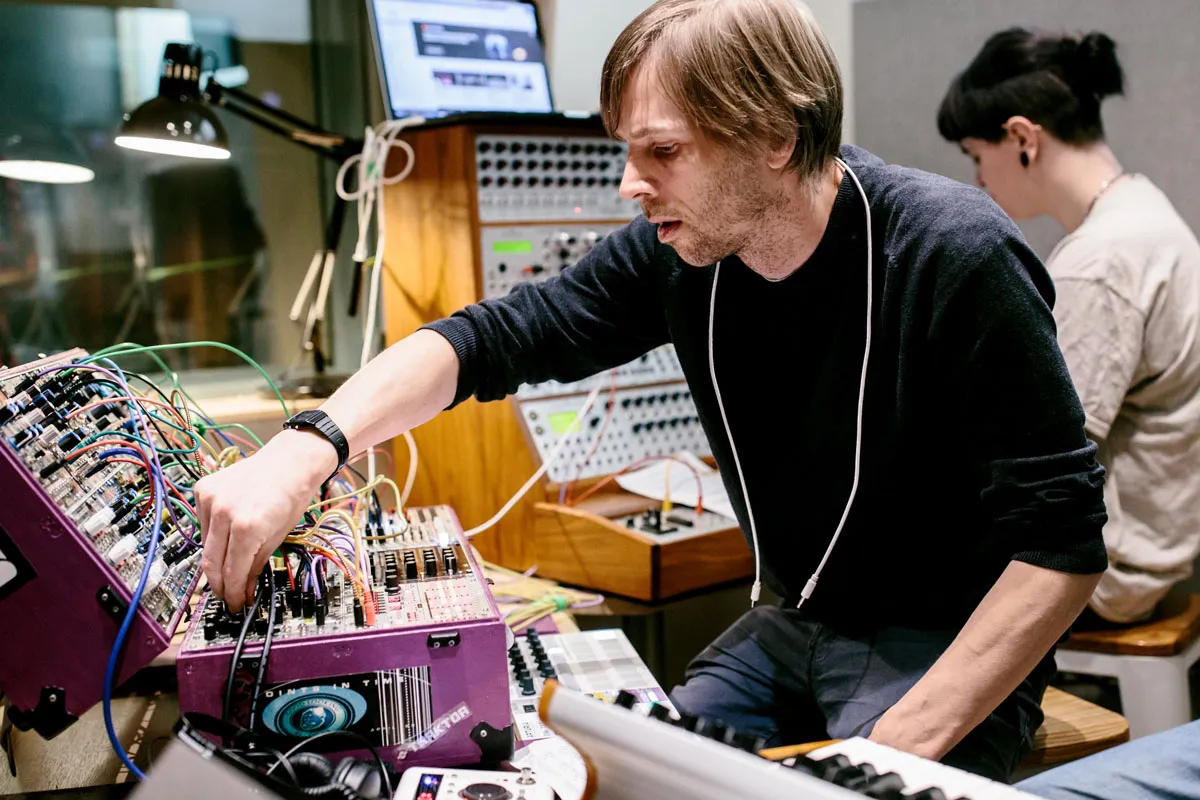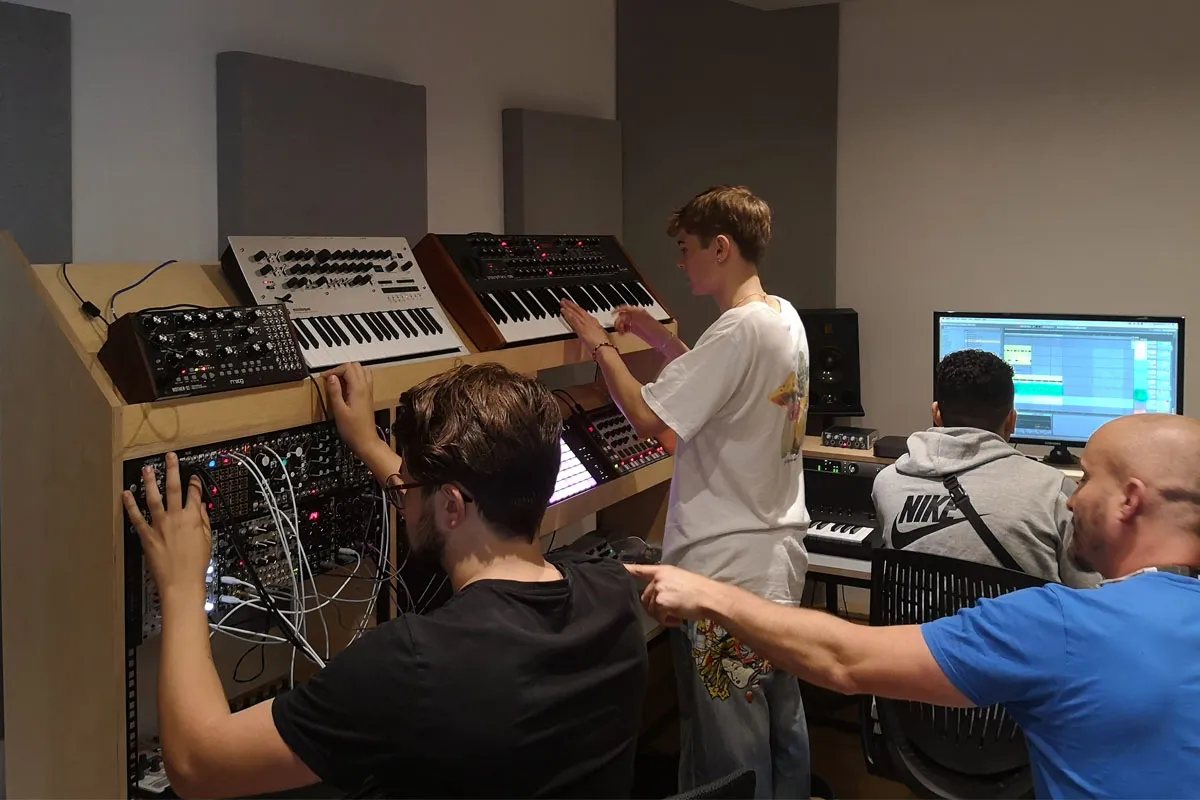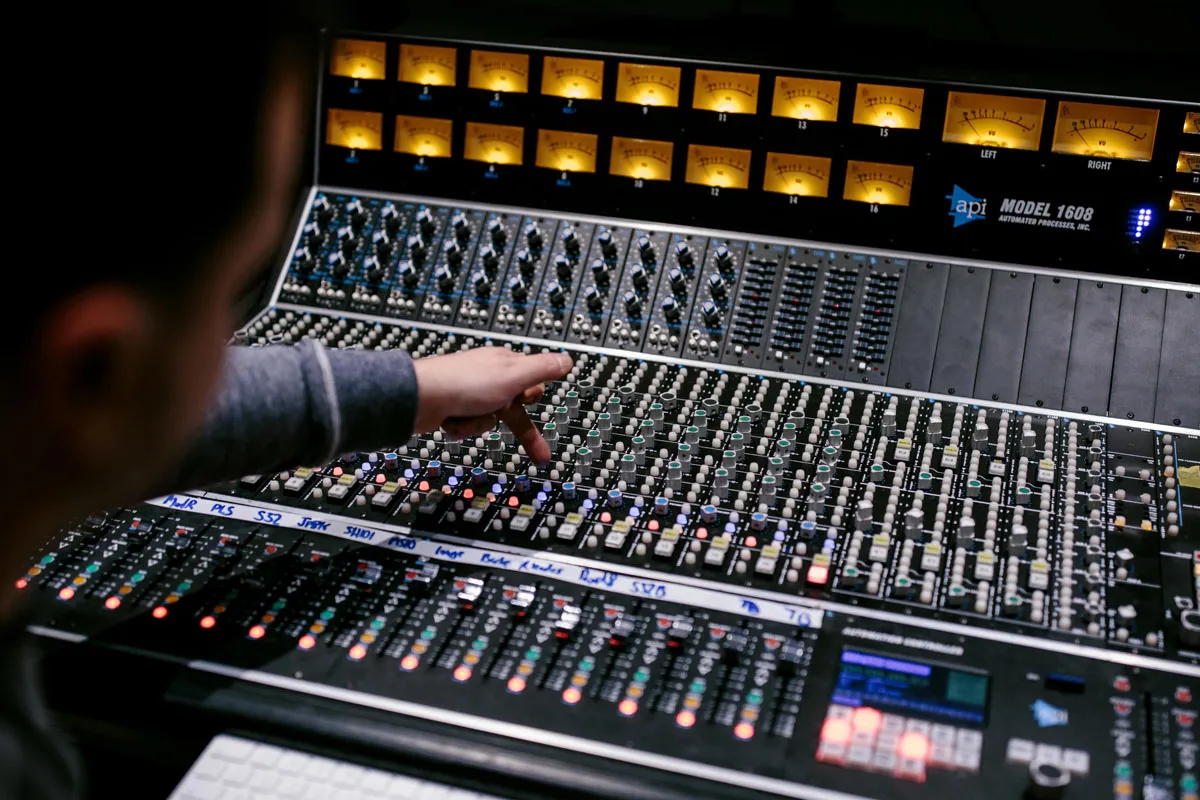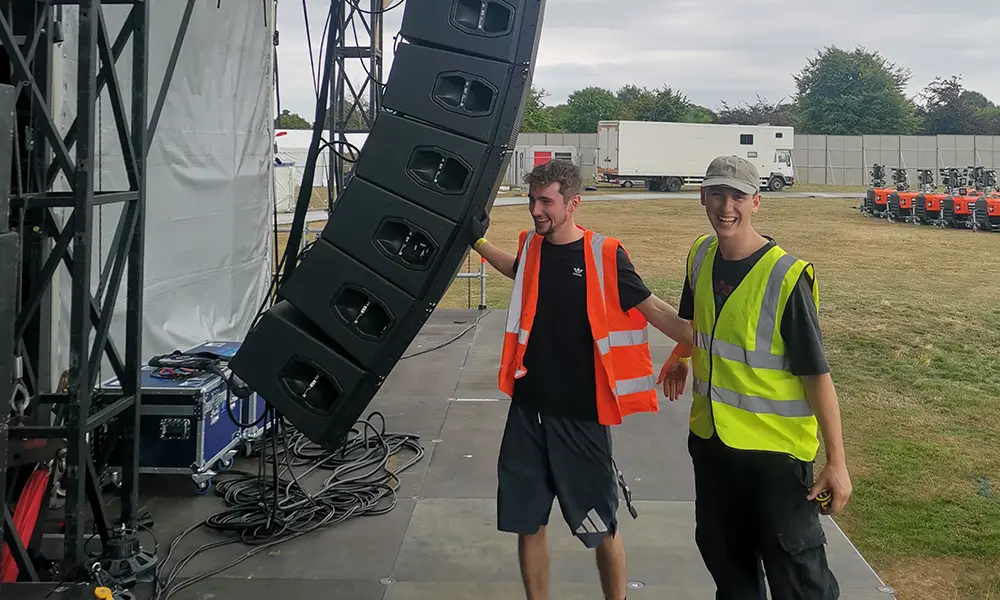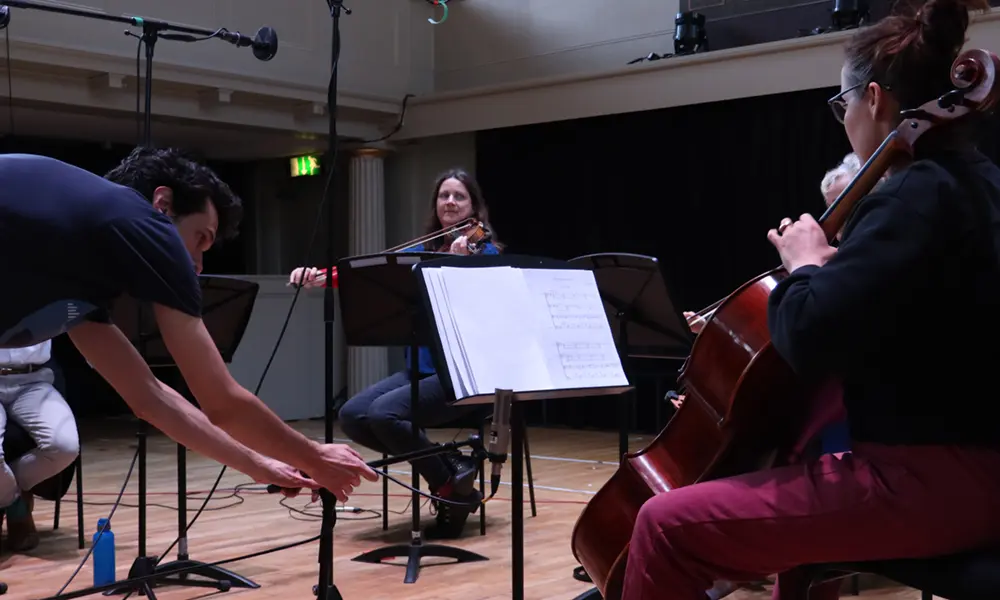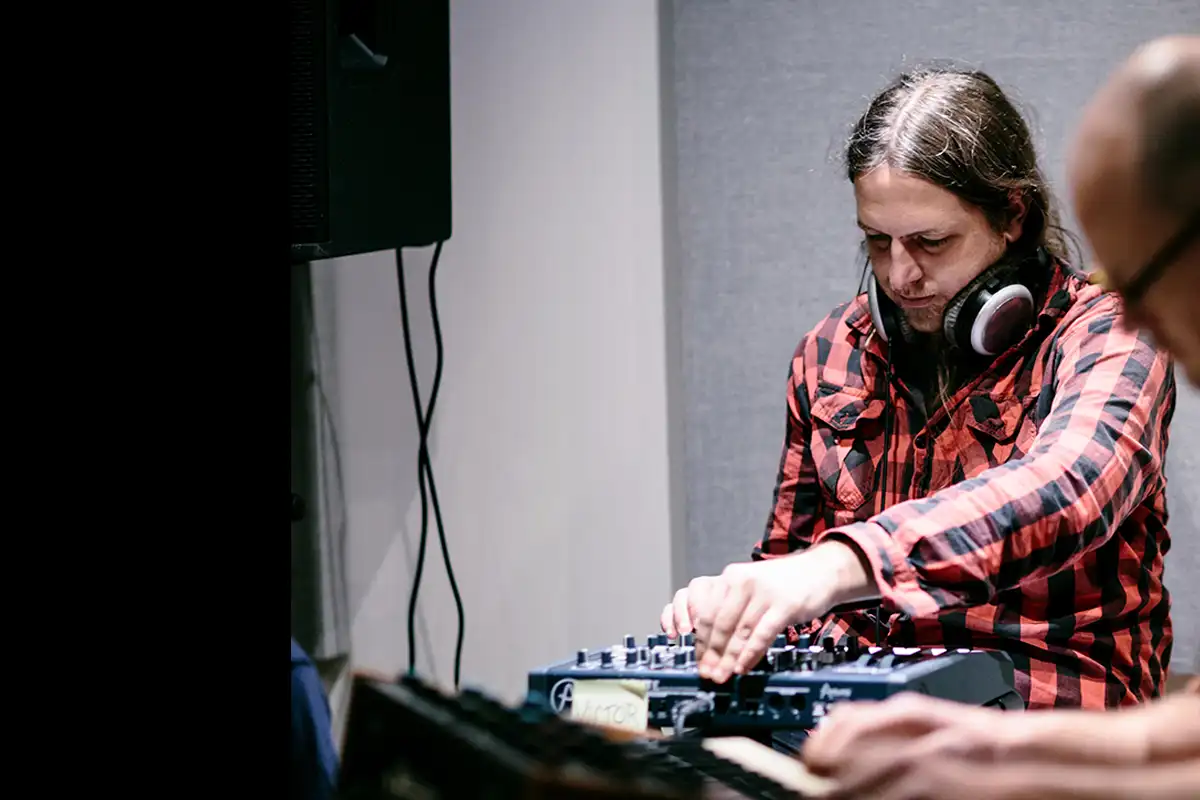Advanced Music Production
This module builds on the Music Production module, further refining your creative and technical approach to music production and experimenting with unconventional creative approaches. You will explore advanced techniques in composition, arrangement, sound design, synthesis, and audio processing.
Post-production
Develop advanced skills in audio post-production for film, television, and games, exploring the complete post-production workflow, including dialogue editing, ADR, Foley, sound design, mixing, and mastering for screen-based media.
Hardware Production
Explore hardware-based music production tools and setups, including synthesisers, drum machines, samplers, modular systems, guitar pedals, vocal processors, and drum triggers, developing a hands-on approach to sound creation and production.
Advanced Mixing & Mastering
This module focuses on advanced mixing and mastering techniques, including detailed approaches to EQ, dynamics processing, stereo imaging, harmonic enhancement, spatial depth, and mastering for a range of distribution formats.
Immersive Audio
Discover the creative world of immersive audio, focusing on mixing and mastering in Dolby Atmos. Explore core principles of immersive sound, including object-based mixing, multichannel signal flow and spatial processing.
Marketing & Promotion
Explore the principles, tools and strategies of marketing and promotion within the music industry, including social media, digital distribution, content creation, how to communicate your message and build a presence.
Integrative Performance Technologies
Explore the principles, tools and strategies of marketing and promotion within the music industry, including social media, digital distribution, content creation, how to communicate your message and build a presence.






